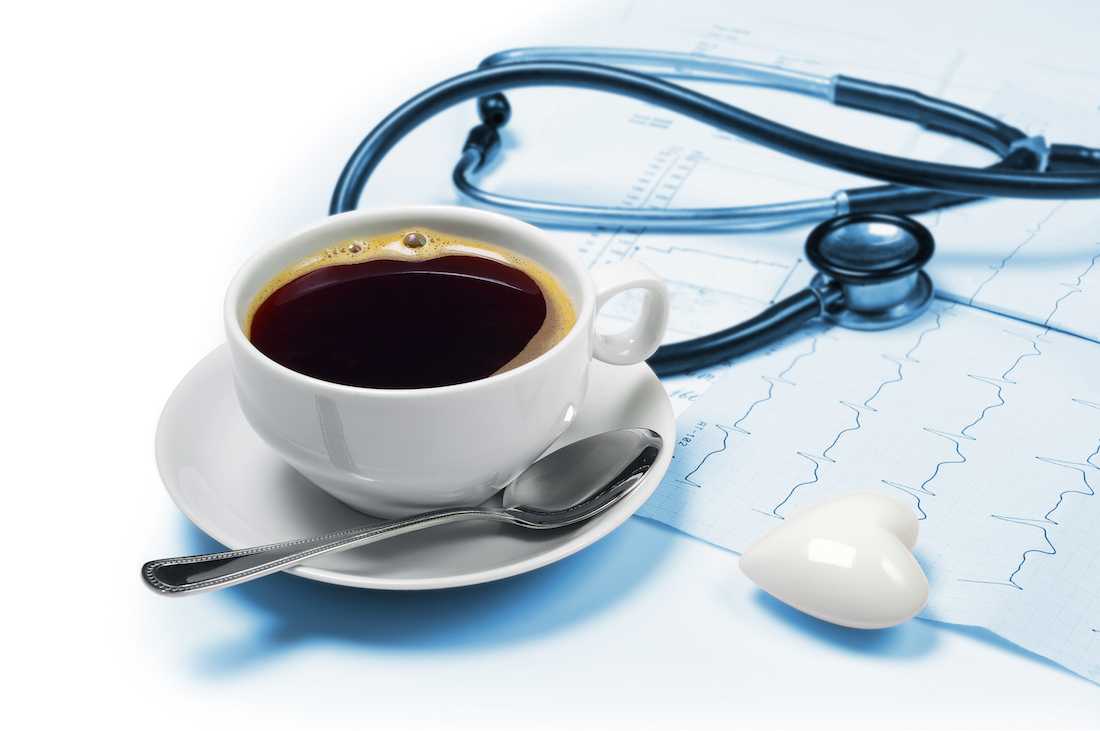Many people with heart failure are advised to avoid coffee because of fears that caffeine might provoke an arrhythmia. Now a rare example of a randomized controlled trial in the field offers some assuring evidence that these patients can safely drink coffee.
The health effects of coffee have been the subject of considerable debate, including wildly disparate views suggesting that coffee may be either beneficial or harmful. But the field has been hampered by the absence of high quality, randomized controlled trials with clinically relevant endpoints.
In their absence observational studies have been used to support a wide variety of positions. Much of the debate has centered on the role of caffeine. Now a small randomized controlled trial sheds light on the effect of coffee in an important patient population.
In a paper published in JAMA Internal Medicine researchers in Brazil report on the short-term electrocardiographic effect of high dose caffeine in 51 patients with moderate to severe heart failure.
They performed a double-blind, randomized crossover trial comparing 500 mg of caffeine or placebo. Participants drank 5 cups of coffee over 5 hours, during which time they underwent electrocardiographic monitoring.
At the end of the 5 hour period a treadmill test was performed.
The researchers found “no association between caffeine ingestion and arrhythmic episodes,” either during ECG monitoring or the treadmill test. They also found no evidence of ventricular or supraventricular premature beats or other arrhythmias.
“Our results challenge the intuitive notion that caffeine intake should be limited or prohibited in patients with heart disease and at risk for arrhythmia,” the authors wrote. “To date, there is no solid evidence to support the common recommendation to limit moderate caffeine consumption in patients at risk for arrhythmias.”
In an accompanying commentary Jacob Kelly and Christopher Granger (Duke Clinical Research Institute) write that the study “is a welcome addition to the literature.” But they note that “the short term nature of the exposure and the small number of patients… preclude any reliable information on clinical outcomes.”
Thomas Whayne, Jr, is a cardiologist at the University of Kentucky who has long been interested in the coffee issue.
“I think the results add further support to the safety of moderate coffee drinking (2-4 cups per day). Unless there is a genetic abnormality as was documented in a valley in Costa Rica, coffee does not appear to increase coronary artery events and it decreases adult onset diabetes mellitus.
The major clinical implication is that we can reassure our patients that moderate coffee (fully caffeinated) intake is fine if enjoyed, unless bothersome arrhythmias or other bothersome symptoms are associated.
In addition, hospitals should offer caffeinated coffee to cardiovascular patients able to ingest it, in moderate levels, instead of prohibiting it for cardiovascular patients as in the past. The limitation as evidence-based medicine is that the study was extremely short-term.”
One important detail of the trial may limit its application to broader populations. Nearly all the patients in the trial were taking a beta-blocker, which slows down the heart and may have prevented or blunted an arrhythmic response.
Although caffeine is known to raise the heart rate, no such elevation was observed in the study.
Whayne agreed that “not taking one might have made a difference,” though it is important to emphasize that all CHF patients should be ” on a beta blocker unless there is a specific contraindication.”
















